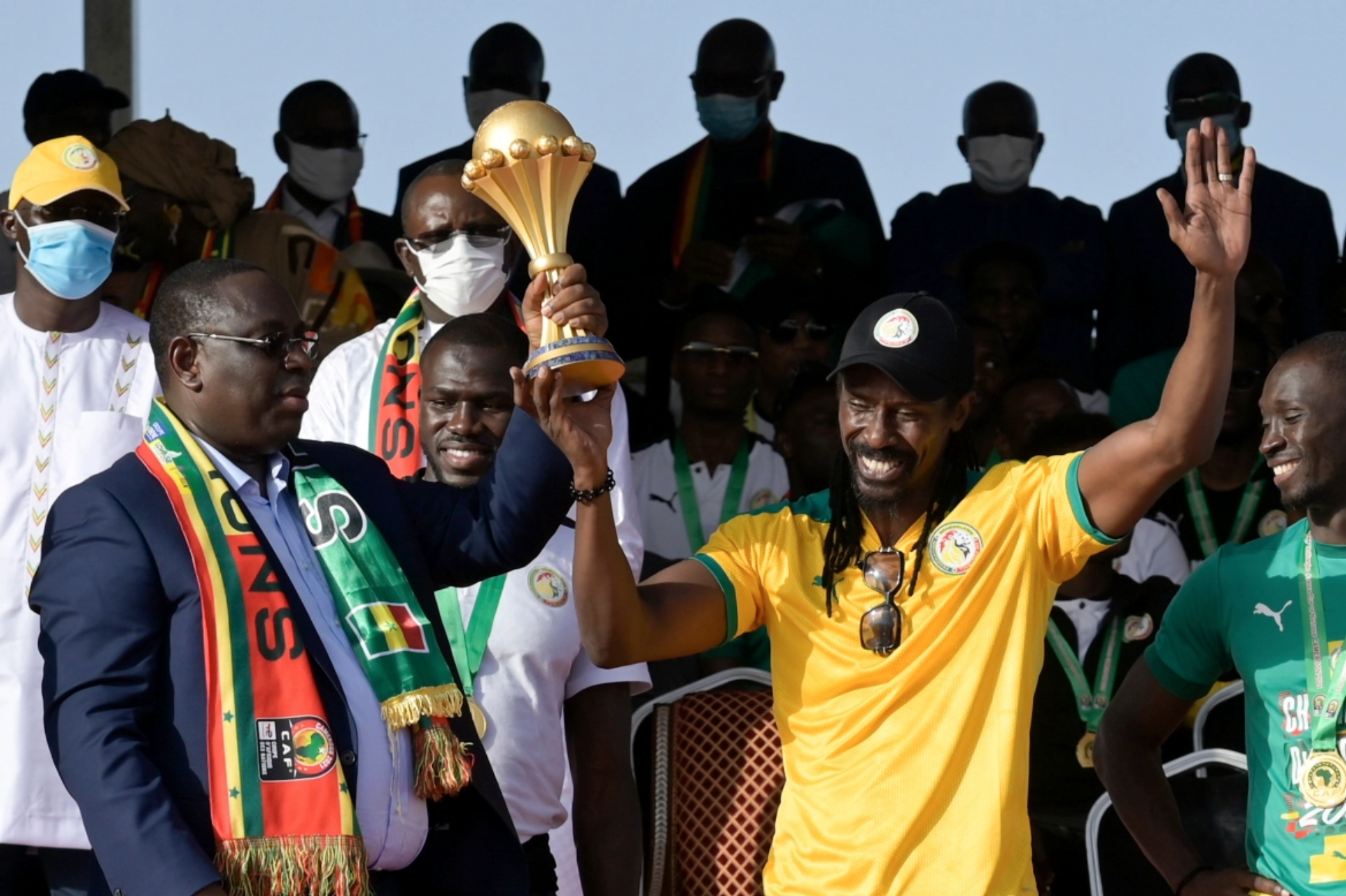Senegal have been crowned kings of Africa for the first time after navigating an African Cup of Nations beset variously by low-scoring slogs, heat-stricken referees and genuine tragedy, but on the whole one that will be remembered as a passionate celebration of African football.
Senegal talisman Sadio Mané was the key player of the final, amending his botched early penalty with the decisive blow to end the shootout against Egypt. Mane’s redemptive arc encapsulated the toil of Senegal and their manager Aliou Cissé (pictured at top) across the past 20 years, with the player-turned-coach involved in their losing finals of 2002 and 2019.
‘Aliou Cissé has dealt with a lot of criticism after losing that final three years ago to Algeria. It was a narrow match, these things can happen in finals, but among his critics were ex-teammates Khalilou Fadiga and El Hadji Diouf, saying Senegal would never win anything under Cissé’, BBC Sport Africa’s Rob Stevens told Box2Box.
‘So for him it’s a personal redemption in a way, having been part of two lost finals to finally bring them over the line. He would have gone through the mill again seeing Mané miss that seventh minute penalty… to go to another shootout and finally have that moment, it was absolutely incredible.’
As Mané blasted the winning penalty past the otherwise imperious Egyptian goalkeeper Gabaski, it was lost on nobody that his opposite number and Liverpool teammate, Mohamed Salah, had gone unused in the shootout.
It was an extraordinary bungle by Egypt, who to that point had been the penalty kings of the tournament; under the ultra-conservative Carlos Queiroz they scored just four goals from open play, relying on spot kicks to move past both Ivory Coast and Cameroon.
‘I think Egypt did very well to get through to the final. Their best performance came against Ivory Coast in the round of sixteen where they hit the post a couple of times and should have scored.’
‘They were hampered by injury: Trézéguet wasn’t fully fit after being injured for a year, and they didn’t have Ahmed Hegazi [in latter stages], but they were still a side that really lacked flair, and they’re at a bit of a crossroads because they face Senegal again in the World Cup playoff next month.’
There was to be no home soil salute for five-time winners Cameroon, although the pain of their exit was put in perspective by the deaths of eight supporters in the Olembe Stadium crush prior to their Round of 16 match against Comoros. That disaster stands as the tournament’s sombre note, and remains subject to investigation.
Vincent Aboubakar and Karl Toko Ekambi barnstormed their way through the tournament in an old-school front two pairing, sharing the load for all but one of the side’s fourteen goals, before coming up dry againsy Egypt at the semi-final stage.
‘It was a low-scoring tournament with only [an average of] 1.92 goals per game in it… [but] Cameroon were the entertainers, certainly the highest scoring side, even hitting three in the third- placed playoff. But in the semi-final they just could find a way to take their chances.
‘Then in the penalty shootout, two of them were two of the worst I’ve seen in terms of technique from Harold Moukoudi and Clinton Njié, but it’s difficult to criticise players because of the amount of pressure on them.’
African football won’t stand still for long, with cut-throat World Cup qualifiers to be contested across two legs in March. Egypt will have another shot at Senegal, while Cameroon have been drawn against faltering powerhouse Algeria, winners of the Cup in 2019 and Arab Cup late last year.
Elsewhere heavyweights Ghana and Nigeria will look to move on from disappointing Cup campaigns, although the loser will be consigned to a double failure, while Morocco will play DR Congo and Mali will face Tunisia.

